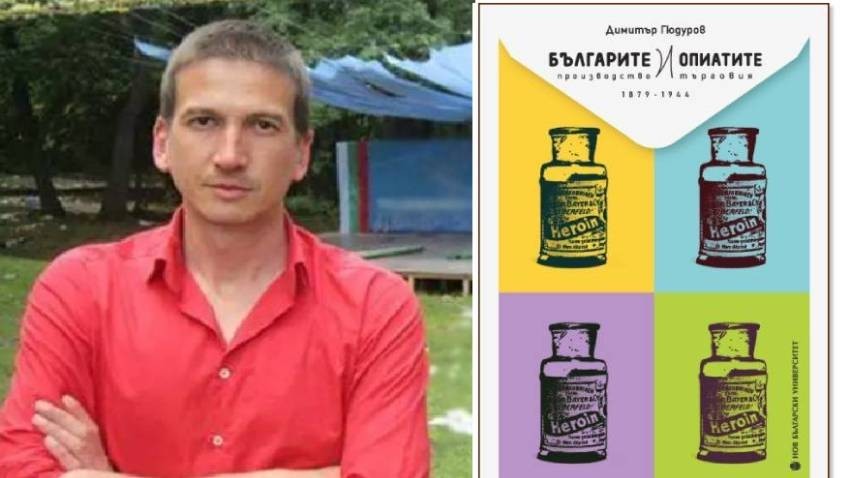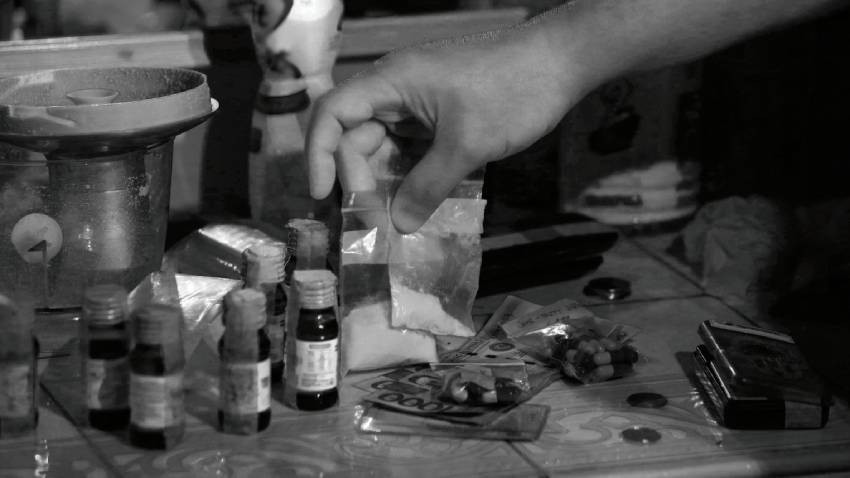Since 1988, Bulgaria has celebrated 26 June as The International Day against Drug Abuse and Illicit Trafficking, or World Drug Day. However, there was a period in its history when the state was actually encouraging the population to produce opiates.
The cultivation of sleeping poppies has been part of economic life since the Ottoman Empire. After Bulgaria’s liberation from Ottoman rule (1878), a new state policy was adopted, which over time grew more and more important for the livelihood of the population and for replenishing the treasury with foreign currency.
"After the reestablishment of the Bulgarian state the government’s policy was focused on agriculture. In 1883, the Ministry of Finance decided that the population should start producing opium. The state even rewarded growers who won awards for quality opium at agricultural exhibitions with a prize of 5 thousand leva," says Assist. Prof. Dimitar Giudurov, PhD at New Bulgarian University.

The economic crisis after the First World War forced part of the population to switch to a new agricultural crop, unconventional for our farming, but bringing good profits - Indian hemp and the extraction of hashish from it. Speculation flourished.
"Bulgarians have a proclivity for illicit trade," says Dr. Giudurov, explaining, "This population was part of the Ottoman Empire, a conqueror whose laws it did not feel the need to obey. People used to hide their produce to avoid taxes. After the Bulgarian state regained its independence, the population continued to sell illegally tobacco, opium, silk cocoons, rose oil, in order to avoid paying taxes and increase their profits."
At that time smugglers transported their contraband mainly by ship through the Black Sea ports of Burgas and Varna. Their profits were huge. They bought the drug at a price of 400 leva per kilo and sold it in Egypt for 35-40 thousand leva. In comparison, the monthly salary of the then Prime Minister was 6 thousand leva.
It is an interesting phenomenon that unlike some other European and North American countries at that time there was no organized crime and criminal world in Bulgaria. The reason for this was the weak urbanization - the population was concentrated mostly in the villages. Criminal groups in the country in the first decades of the twentieth century emerged as a result of abuse of office and influence:
"It was typical for the Bulgarian criminal groups that they would only gather for a brief period of time, commit a crime and disband. They do not participate as a group in other criminal activities. Criminals for certain types of offences organize public officials in high positions - police chiefs, district and county judges - who take the lion's share of the profits," Mr Giudurov said.

Despite the high quality of opiates produced in Bulgaria, drug addiction did not exist as a social and cultural phenomenon at the time. Such was the perception of the Bulgarians - that the drug was not intended for use, but for sale.
At the beginning of the 1930s Europe imposed strict measures against the production and distribution of drugs, and illegal groups moved their operational centres elsewhere - including Bulgaria. This country produced only 1% of the world's opium, but its legislation was favourable to smugglers - there were no prosecutions, fines were low and there were no extradition agreements.
"Bulgaria was accused of becoming a hub for drug distribution, but it was more of a meeting place for international smugglers who freely discussed drug channels. The problem was contained by the police, who used physical force," says Dimitar Giudurov.
The Bulgarian authorities' war against illegal drug production and distribution has been waged with varying success over the years and continues today.
English version: Elizabeth Radkova
Photos: personal archive, EPA/BGNES
The exhibition "Codes of Identity", which opens today in Sofia, presents ancient Bulgarian lineages that have left a lasting legacy. The venue is the National Archaeological Institute with Museum at the Bulgarian Academy of Sciences (NAIM-BAS) In..
June 11, 2007 - US President George W. Bush Jr. visits Sofia. According to protocol, the press conference he held for the media took place among the exhibits of the National Archaeological Museum. The official lunch for the guest was later held at the..
On November 10, 1989, a plenum of the Central Committee of the Bulgarian Communist Party ousted its General Secretary and Chairman of the State Council, Todor Zhivkov. This marked the symbolic beginning of the transition from a one-party system to..
On November 25, the Bulgarian Orthodox Church honours the memory of St. Clement of Ohrid – a distinguished archbishop, teacher and scholar. He was among..

+359 2 9336 661
